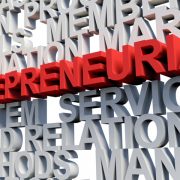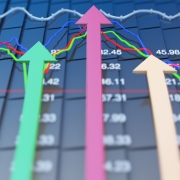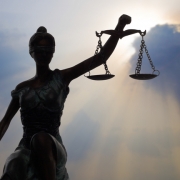Economists use the term uncertainty in reference to future conditions that are unknown and unknowable. The economic system consists of trillions of interactions between individuals, and, in each one, both buyers and sellers are making a creative choice. Shall I buy this or that? At what price? Shall I sell this or that? At what price? If I modify my offer slightly, will there be a different result? I felt good about this possible purchase yesterday, but now I am not so sure. Should I check out this new competitor first? I didn’t expect it to rain, so maybe now I should buy an umbrella instead of lunch. I didn’t expect electric cars. I didn’t expect artificial intelligence.
Bearing The Weight Of Uncertainty.
Those same economists say that the people who bear the weight of this future uncertainty the most in the economy are the entrepreneurs. They bear it eagerly on behalf of the rest of us. Entrepreneurs have a special relationship with the future. They make a deal with the future. It is their domain. They imagine a future that is better than today, and they believe that they can bring it about. They sacrifice in order to do so, because while they are assembling and deploying their resources, they are not earning current rewards. Rather, they are hoping for future rewards – and those future rewards are uncertain. They may bet wrong. Some competitor may be imagining the same future and doing a better job of investing and implementing.
For the consumer, the uncertainty of the future is a positive sum. They are going to be offered something new and better. For the entrepreneur, it could be positive or negative.
The Psychic Rewards Of Sacrifice.
Importantly, however, the entrepreneur’s incentive for bearing uncertainty is not only financial. There is considerable psychic reward on offer. Different entrepreneurial personalities may experience the psychic reward in different ways – the exhilaration of taking on the unknown, the joy of self-reliant action, the fulfillment of pursuing one’s own intuition, the sense of achievement in assembling resources in a new and unique way.
In his book 12 Rules For Life: An Antidote To Chaos, Dr. Jordan B. Peterson spends a lot of time talking about entrepreneurial sacrifice: the proposition “that something better might be attained in the future by giving up something of value in the present”. In other words, sacrifice now to gain later. The difference between successful people and unsuccessful people is the successful sacrifice. The courage to undertake this sacrifice gives you more security and strength than any short-sighted concentration on your own safety. It’s living properly, it’s discovering meaning. Meaning, for Dr. Peterson, is the antidote for chaos and suffering.
Honesty And Authenticity.
Another take on the importance of entrepreneurial uncertainty comes from Nassim Nicholas Taleb in his book, Skin In The Game. Taking responsibility, including moral and ethical responsibility as well as financial responsibility, for the downside risk of one’s entrepreneurial efforts (Taleb would call these “trades”) is what holds society together. It is transparency and honesty and authenticity. It is the honorable life, the only one worth living.
Beware Of Those Who Don’t Have Skin In The Game.
According to Taleb, those who don’t have skin in the game include:
Bureaucrats: Bureaucracy is a construction by which a person is conveniently separated from the consequences of his or her actions.
Governments: government interference in general tends to remove skin in the game.
Academics: in academia, there is no difference between academia and the real world; in the real world, there is.
Administrators: Administrators, everywhere on the planet, in all businesses and pursuits, and at all times in history, have been the plague.
Take Action. Do Something Heroic.
The people with skin in the game are doers. They act. They take risks. And they are prepared to accept the consequences if they take the wrong risk, or the risk does not work out. Taleb includes entrepreneurs in this group: Entrepreneurs are heroes in our society. They fail for the rest of us.
For economists, the market is a process of learning and discovery in the context of uncertainty. For Dr Peterson, entrepreneurial sacrifice is courage and meaning. For Nassim Nicholas Taleb, skin in the game is authenticity and an honorable life.
In all cases, the entrepreneurial life is the one that reaps the greatest rewards, both psychic and (potentially) financial.













